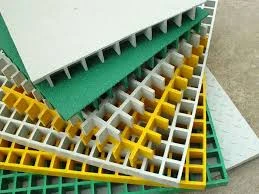
-
 Afrikaans
Afrikaans -
 Albanian
Albanian -
 Amharic
Amharic -
 Arabic
Arabic -
 Armenian
Armenian -
 Azerbaijani
Azerbaijani -
 Basque
Basque -
 Belarusian
Belarusian -
 Bengali
Bengali -
 Bosnian
Bosnian -
 Bulgarian
Bulgarian -
 Catalan
Catalan -
 Cebuano
Cebuano -
 China
China -
 China (Taiwan)
China (Taiwan) -
 Corsican
Corsican -
 Croatian
Croatian -
 Czech
Czech -
 Danish
Danish -
 Dutch
Dutch -
 English
English -
 Esperanto
Esperanto -
 Estonian
Estonian -
 Finnish
Finnish -
 French
French -
 Frisian
Frisian -
 Galician
Galician -
 Georgian
Georgian -
 German
German -
 Greek
Greek -
 Gujarati
Gujarati -
 Haitian Creole
Haitian Creole -
 hausa
hausa -
 hawaiian
hawaiian -
 Hebrew
Hebrew -
 Hindi
Hindi -
 Miao
Miao -
 Hungarian
Hungarian -
 Icelandic
Icelandic -
 igbo
igbo -
 Indonesian
Indonesian -
 irish
irish -
 Italian
Italian -
 Japanese
Japanese -
 Javanese
Javanese -
 Kannada
Kannada -
 kazakh
kazakh -
 Khmer
Khmer -
 Rwandese
Rwandese -
 Korean
Korean -
 Kurdish
Kurdish -
 Kyrgyz
Kyrgyz -
 Lao
Lao -
 Latin
Latin -
 Latvian
Latvian -
 Lithuanian
Lithuanian -
 Luxembourgish
Luxembourgish -
 Macedonian
Macedonian -
 Malgashi
Malgashi -
 Malay
Malay -
 Malayalam
Malayalam -
 Maltese
Maltese -
 Maori
Maori -
 Marathi
Marathi -
 Mongolian
Mongolian -
 Myanmar
Myanmar -
 Nepali
Nepali -
 Norwegian
Norwegian -
 Norwegian
Norwegian -
 Occitan
Occitan -
 Pashto
Pashto -
 Persian
Persian -
 Polish
Polish -
 Portuguese
Portuguese -
 Punjabi
Punjabi -
 Romanian
Romanian -
 Russian
Russian -
 Samoan
Samoan -
 Scottish Gaelic
Scottish Gaelic -
 Serbian
Serbian -
 Sesotho
Sesotho -
 Shona
Shona -
 Sindhi
Sindhi -
 Sinhala
Sinhala -
 Slovak
Slovak -
 Slovenian
Slovenian -
 Somali
Somali -
 Spanish
Spanish -
 Sundanese
Sundanese -
 Swahili
Swahili -
 Swedish
Swedish -
 Tagalog
Tagalog -
 Tajik
Tajik -
 Tamil
Tamil -
 Tatar
Tatar -
 Telugu
Telugu -
 Thai
Thai -
 Turkish
Turkish -
 Turkmen
Turkmen -
 Ukrainian
Ukrainian -
 Urdu
Urdu -
 Uighur
Uighur -
 Uzbek
Uzbek -
 Vietnamese
Vietnamese -
 Welsh
Welsh -
 Bantu
Bantu -
 Yiddish
Yiddish -
 Yoruba
Yoruba -
 Zulu
Zulu
large diameter fiberglass pipe
The Advantages of Large Diameter Fiberglass Pipes
In recent years, large diameter fiberglass pipes have gained significant attention in various industries due to their remarkable advantages over traditional piping materials. Composed of a polymer matrix reinforced with glass fibers, these pipes offer a unique combination of strength, durability, and resistance to corrosion. This article explores the benefits and applications of large diameter fiberglass pipes, highlighting why they are an ideal choice for numerous projects.
One of the primary advantages of fiberglass pipes is their exceptional resistance to corrosion. Unlike metal pipes, which can succumb to rust and deterioration when exposed to harsh environments, fiberglass pipes maintain their integrity even in chemically aggressive settings. This characteristic makes them particularly suitable for the chemical processing, wastewater treatment, and oil and gas industries, where exposure to corrosive substances is a significant concern.
Additionally, large diameter fiberglass pipes are incredibly lightweight compared to traditional materials such as steel or concrete. This reduced weight not only simplifies transportation and installation but also lowers overall project costs. Contractors can easily handle the pipes, often requiring less heavy machinery and labor. This ease of installation can lead to reduced construction timelines and enhanced project efficiency, an essential factor in today’s fast-paced world.
Moreover, fiberglass pipes exhibit high tensile strength while being flexible enough to withstand ground movements and shifting conditions. This flexibility minimizes the risk of cracking and leaks, which can be a common problem with more rigid piping materials. The ability to handle temperature fluctuations and various pressures without compromising structural integrity further enhances their appeal in diverse applications.
large diameter fiberglass pipe

Another notable feature of large diameter fiberglass pipes is their smooth internal surface, which promotes efficient fluid flow. This design reduces friction and, consequently, energy consumption in pumping systems. The efficiency gained from this smooth flow translates into long-term cost savings, making fiberglass an economically viable option for utilities and industries alike.
In terms of longevity, fiberglass pipes outlast many traditional options. Their resistance to environmental factors such as UV radiation and extreme temperatures means they require minimal maintenance over their lifespan. This durability translates to fewer replacements, reduced downtime, and significant savings in maintenance costs.
Fiberglass pipes are also more sustainable compared to conventional materials. Their manufacturing process consumes less energy and the pipes themselves can be recycled, contributing to a greener environment. As industries increasingly prioritize sustainability, the use of fiberglass pipes aligns perfectly with these initiatives.
In conclusion, large diameter fiberglass pipes represent a modern solution to piping challenges in various industries. Their corrosion resistance, lightweight design, flexibility, smooth flow characteristics, longevity, and sustainability make them a compelling option over traditional materials. As industries continue to evolve and seek efficient, cost-effective, and environmentally friendly solutions, the adoption of large diameter fiberglass pipes is likely to grow, establishing a new standard in piping technology.
Latest news
-
Exploring the Benefits of Top Hammer Drifter Rods for Enhanced Drilling PerformanceNewsJun.10,2025
-
High-Precision Fiberglass Winding Machine for GRP/FRP Pipe Production – Reliable & Efficient SolutionsNewsJun.10,2025
-
FRP Pipes & Fittings for Shipbuilding - Corrosion-Resistant & LightweightNewsJun.09,2025
-
Premium FRP Flooring Solutions Durable & Slip-ResistantNewsJun.09,2025
-
Premium Fiberglass Rectangular Tanks Durable & Lightweight SolutionNewsJun.09,2025
-
Tapered Drill String Design Guide Durable Performance & UsesNewsJun.09,2025









